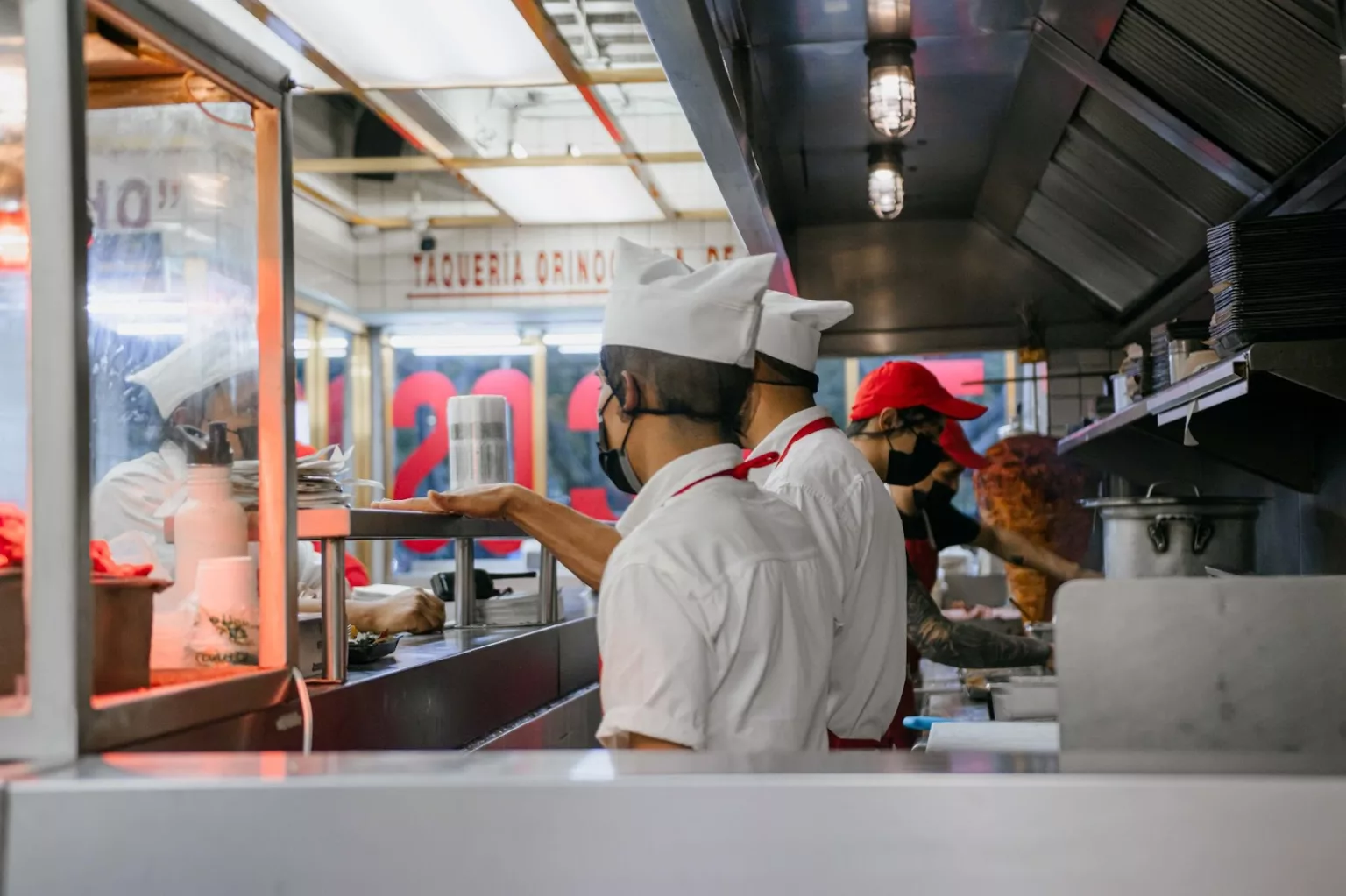Hiring Employees vs. Temps vs. Contractors for Restaurants

When it comes to hiring staff for your restaurant, you may be tempted to take shortcuts and hire temp workers or contractors instead of full-time employees in order to save on costs like payroll tax and employee benefits.
However, it’s important to keep in mind that there are consequences that come with hiring the “wrong” type of worker in the restaurant industry (or any industry for that matter).
Making the wrong choice, i.e. misclassifying your workers as contractors when they really should be employees, can lead to tens of thousands of dollars in fines.
In this blog post, we’re going to explore the differences between hiring temp workers, contractors, and employees for restaurants, and help you determine which option is best for your business.
Let’s dive in.
Hiring Independent Contractors for Restaurants
Hiring a restaurant worker as an independent contractor will relieve you of the many costs that generally come with hiring employees, such as payroll taxes, benefits, workers’ compensation, unemployment costs, and minimum wage responsibilities.
And while that may seem nice, only a small fraction of workers actually qualify to work as independent contractors under the current U.S. labor laws.
The IRS and Department of Labor are strict about the classification of independent contractors vs. employees. And not adhering to the rules could see your restaurant fined tens of thousands of dollars in penalties.
Which is why it’s so important to get the status right.
In order for your worker to be considered an independent contractor, you must assess three categories of questions:
- Behavioral control: Does your restaurant have the authority to direct and control the work that your worker does? Does the worker receive training and instruction?
- Financial control: Are the business aspects of the worker’s job controlled by the payer? (these include things like how the worker is paid, whether expenses are reimbursed, who provides tools/supplies, etc.)
- Type of relationship: Are there written contracts or employee-type benefits (i.e. pension plan, insurance, vacation pay, etc.)? Is the work performed a key aspect of the business?
In short, if you’re controlling your worker in any way, they should be classified as an employee.
True independent contractors can come and go as they please, choose how they get the work done, choose when they get the work done, and control how they get paid.
The length of time that they work does not matter. If you are controlling the worker in any way, even if they only work for a defined 3-month period (such as summertime, only), they are considered an employee.
Tough, but those are the rules.
In 99% of restaurant jobs, workers are not going to fall under independent contractor status.
Hiring Temp Workers for Restaurants
So, what about hiring temp workers for your restaurant?
According to the Department of Labor, a temporary employee is a worker whose term of employment lasts less than a year.
The employer and employee’s agreement usually consists of quick, defined work with a target end date.
Sometimes, a temporary employee is hired to cover for a worker on parental or disability leave.
Sometimes, temp workers are meant to fill gaps in the busy season, such as the holidays or summertime.
And typically, they are classified as independent contractors and are not eligible for company benefits.
Which, as we discussed above, probably won’t work for the type of work you need them to do in your restaurant.
Which leads us to our next category…
Hiring Temp-to-Hires for Restaurants
A popular way of hiring in the hospitality industry is what’s known as “temp to hire” – also known as temp-to-perm or contract-to-hire – and is a type of employment arrangement where an employee starts off as a temporary worker but has the potential to be hired on as a full-time employee after a trial period.
One key difference from temporary workers is that temp-to-hire employees are often classified as W-2 employees from the outset, rather than as independent contractors like many temporary workers.
This is because if a worker has the same roles and responsibilities as an employee, even for a short period of time, they are still an employee in the eyes of the government.
This also means that they are entitled to the same benefits and protections as full-time employees, including minimum wage and overtime protections, workers’ compensation insurance, and, potentially, healthcare and other benefits.
Temp-to-hires are commonly subjected to a trial period, during which their performance is evaluated to see if they are a good fit for the company long-term.
After which, they can be offered a full-time position within the company.
Either way, a temp-to-hire contract worker must be treated the same way as an employee.
Meaning you’ll need to fork out payroll tax and employee benefits all the same.
Hiring Employees for Restaurants
So, finally, let’s talk about hiring employees.
As a restaurant owner, this is likely the classification you are after, and what we recommend to the restaurant businesses we work with.
To ensure that you are legally complying with the IRS, Department of Labor, and Fair Labor Standards Act (FLSA), we recommend hiring all workers as part-time or full-time employees.
But, just because they are an employee doesn’t mean that they shouldn’t be put through a trial period.
We recommend giving all employees a trial period so that you can get rid of them before heavily investing in training if they aren’t the right fit.
After all, staffing your restaurant is one of the most important things to get right when running a successful business, and can become quite costly if it doesn’t go to plan.

What Happens If You Get It Wrong?
What happens if you get caught?
If you misclassify your workers as contractors when they should be classified as employees, you could be subject to a range of risks and penalties.
For example, if the IRS were to come in and reclassify your contractors as employees, you would owe all of the payroll taxes for these individuals, including Social Security, Medicare, and unemployment plus penalties.
For just 1 year of misclassification, these taxes and penalties can add up to about 15% of the employees wages. In cases of willful misclassification the fees can be excessive. And this is just from the IRS audit, you also have to worry about audits from your states….
That’s a lot more expensive than simply paying the 10 – 15% more by appropriately paying them as employees from the beginning.
On the surface it may appear to be cheaper to pay workers as contractors. In the long run, it doesn’t work out that way.
It’s important to note that labor laws can be complicated and there are many factors to consider when classifying workers.
If you’re unsure about the classification of your workers, it’s best to seek advice from a labor attorney or a restaurant accountant with experience in this area.
Work with an Experienced Restaurant Accountant
Are you curious whether or not you are complying with the IRS, Department of Labor, and Fair Labor Standards Act (FLSA) when it comes to the workers in your restaurant?
We strongly recommend taking a look at your individual working arrangements.
Chances are, there are a few front-of-house restaurant workers that should be classified as employees in your business, rather than contractors.
If so, don’t fret. It’s a manageable thing to change.
Your next step is to seek advice from a labor attorney or an accountant with experience in this area.
If you’re on the lookout for an experienced restaurant accountant, we’re happy to have a chat.
Helping restaurant business owners improve their businesses is what we’re here for!
You can fill out a form to get in touch with us anytime.
Until next time!


